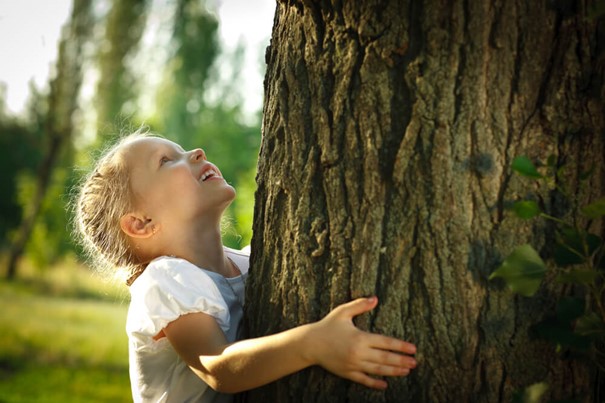Children should get a “daily dose” of trees and other nature, even if you live in a city.
A British study involving more than 3,500 urban children and teenagers from across London found that more daily exposure to forests (or trees) can help children’s cognitive development.

“Few things have the potential to provide that sense of immersion in pristine nature in the way that trees can,” says Tim Beatley, founder and CEO of Biophilic Cities, which advocates for cities of the future where residents are surrounded by nature.
Benefits of trees for the brain
There are many interesting things for children to hear, touch, smell and see in the forest, such as chirping birds, rough bark, fragrant leaves and flickering worms. Trees and the incredible array of things in, on and around them can help with sensory integration – this is how the brain receives, organises and responds to information from the senses, says paediatrician Keith Somers.
It is well known that the five senses – sight, sound, smell, taste and touch – are crucial to a child’s development, along with balance and spatial awareness. All of these can be developed in the forest, next to the trees. Somers notes that stimulating the senses in the first three years of life helps build a strong and healthy brain.
Why do children need trees?
You do not need a whole forest or a forest park to stimulate children’s imagination and creative problem-solving. A single tree will do, and it does not have to be alive. Dead trees on the ground are bursting with life and serve as shelter and food sources for birds, beetles, salamanders and other creatures that can be of great interest to children.
Children can be mentally captivated by the swaying, moving and creaking of trees that bring cities and neighbourhoods to life. “Looking at trees is similar to the ‘effortless gaze’ we experience when we look at clouds or the ocean,” says Beatley. Trees also provide shade and cool the surroundings (increasingly important in urban environments) and help reduce air pollution, which in turn reduces the risk of asthma in children.
Ekodežela